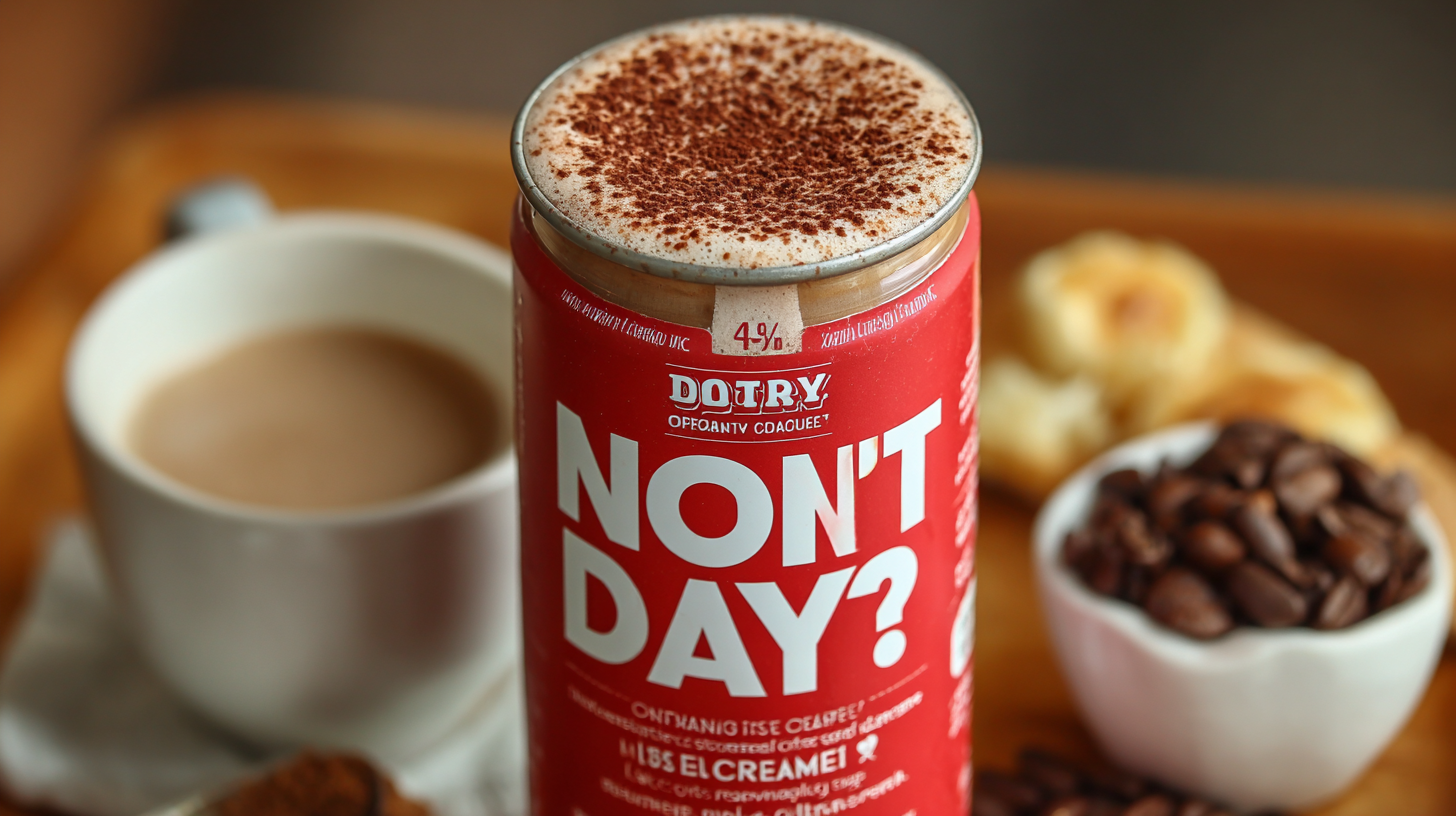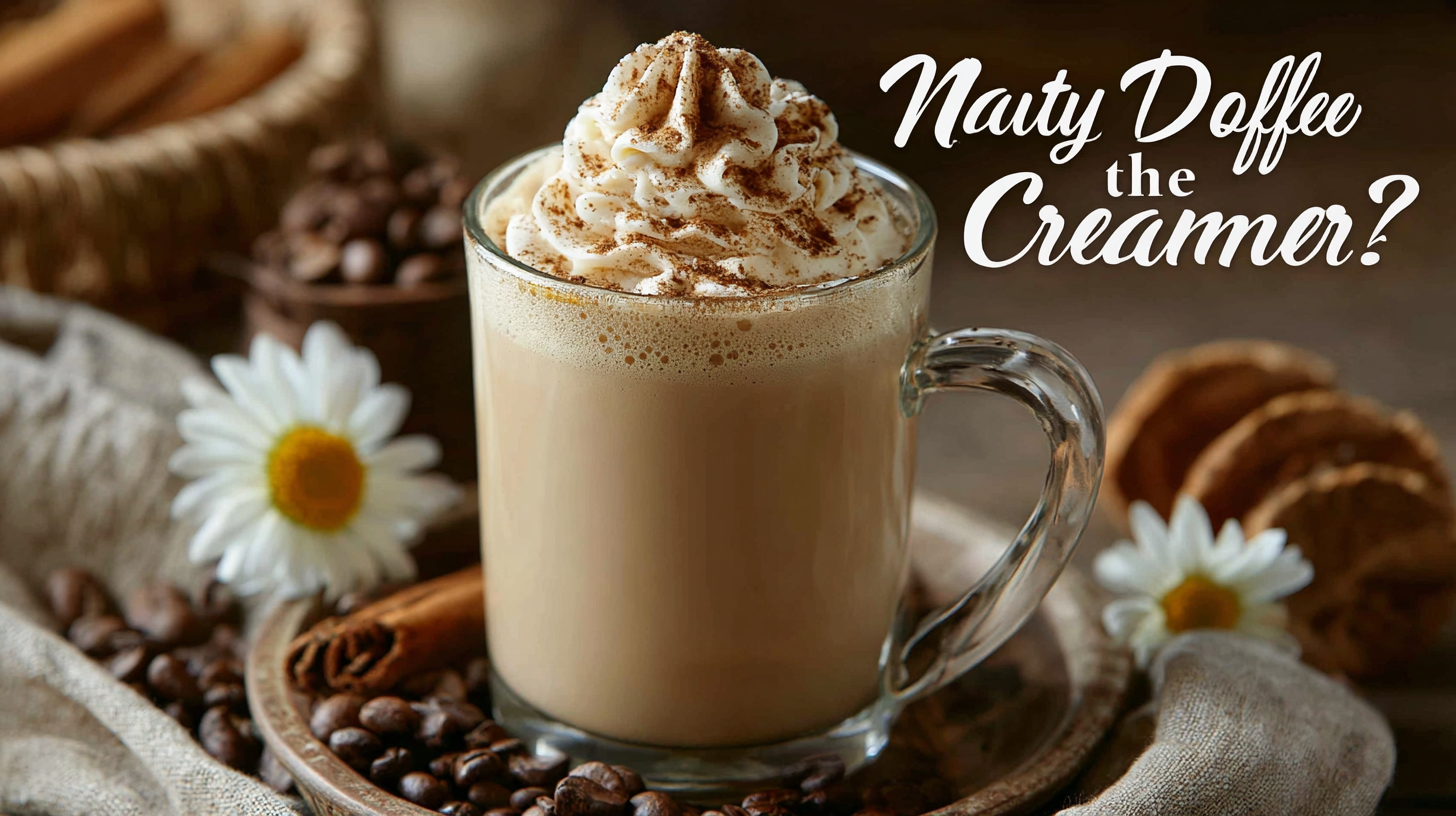
What Is the Best Non-Dairy Coffee Creamer? Exploring Options and Industry Trends
In recent years, the demand for non-dairy alternatives has surged, particularly in the realm of coffee creamers. As more people become conscious of dietary restrictions, lactose intolerance, and vegan lifestyles, consumers are seeking the best non-dairy coffee creamer options to enhance their daily brew. With a diverse array of choices available—from almond, soy, coconut to oat-based creamers—the market is brimming with innovative flavors and formulations.

This blog delves into the top contenders in the non-dairy creamer scene, examining their ingredients, flavor profiles, and nutritional values. We will also explore industry trends that shape consumer preferences and the future of coffee creamers. Join us on this journey to discover the best non-dairy coffee creamer that not only complements your coffee but also aligns with your taste and lifestyle.
The Rise of Non-Dairy Coffee Creamers: Why Consumers Are Making the Switch
The trend towards non-dairy coffee creamers has gained significant momentum in recent years, reflecting a shift in consumer preferences driven by health and ethical considerations. Many individuals are now seeking alternatives to traditional dairy products, citing lactose intolerance, dairy allergies, and a desire for plant-based diets as primary motivators. This shift goes beyond just dietary needs; it also aligns with a growing awareness of the environmental impact of animal agriculture and a desire to make sustainable choices.
In response to this rising demand, the market has seen an explosion of non-dairy creamer options, ranging from almond and coconut to oat and soy-based products. Brands are innovating to create creamers that not only provide a creamy texture but also cater to diverse taste profiles and dietary restrictions. Consumers are increasingly drawn to products that feature clean labels, minimal ingredients, and functional benefits, such as added protein or vitamins. This evolving landscape indicates a promising future for non-dairy coffee creamers, as manufacturers continue to adapt to the desires and values of their health-conscious customer base.

Exploring Different Types of Non-Dairy Creamers: Ingredients and Benefits
The non-dairy coffee creamer market is experiencing significant growth, driven by an increasing consumer demand for plant-based alternatives. Market research estimates the global market size for milk substitutes will reach $1.7837 billion by 2025, with a compound annual growth rate (CAGR) of 8.8%, potentially increasing to $3.5024 billion by 2033. This trend reflects a broader shift towards healthier lifestyle choices and an emphasis on ingredient transparency.
When exploring the different types of non-dairy creamers available, it's crucial to consider their ingredients and health benefits. Almond, soy, and oat milks are among the most popular options, each offering unique flavors and nutritional profiles. For instance, almond milk is often lower in calories and packed with vitamin E, while oat milk boasts a creamier texture and is rich in beta-glucans, which can support heart health. Additionally, the market for macadamia milk is gaining traction, with insights indicating significant market share and growth potential through 2031. As consumers become more health-conscious, the demand for organic and traditional varieties of plant-based creamers continues to rise, with convenience stores and supermarkets leading in sales channels, reflecting a shift in purchasing behaviors.

Taste Test Showdown: Comparing Popular Non-Dairy Coffee Creamer Brands
The popularity of non-dairy coffee creamers has surged, largely driven by the growing demand for plant-based alternatives among consumers. A recent tasting event provided a closer look at some of the most beloved brands in the market, revealing not only flavor profiles but also how well they froth and integrate into espresso-based drinks. It turns out that oat milk often tops the list for baristas, thanks to its creamy texture and ability to froth beautifully, making it a favorite choice for lattes and cappuccinos.
In the industry, reports indicate that non-dairy milk consumption has increased by over 30% in recent years, with oat milk leading the charge, followed closely by almond and soy options. A taste test of popular plant-based creamers demonstrated that while some brands excel in taste, others might lack the same depth or creaminess that dairy enthusiasts crave. The second segment of the taste tests showed that flavor varies greatly across different brands, with some being particularly well-suited for cold coffees compared to others, which shine in hot beverages. These insights into consumer preferences showcase a dynamic landscape where taste and texture continue to be pivotal in shaping the non-dairy coffee creamer market.
What Is the Best Non-Dairy Coffee Creamer? Exploring Options and Industry Trends
| Creamer Type | Main Ingredient | Flavor Profile | Sugar Content (g per serving) | Calories (per serving) |
|---|---|---|---|---|
| Almond Milk Creamer | Almonds | Nutty, Mild | 1 | 30 |
| Coconut Milk Creamer | Coconut | Creamy, Tropical | 2 | 50 |
| Oat Milk Creamer | Oats | Smooth, Mildly Sweet | 6 | 40 |
| Soy Milk Creamer | Soybeans | Rich, Creamy | 2 | 40 |
| Cashew Milk Creamer | Cashews | Buttery, Smooth | 1 | 35 |
Health Trends: Evaluating Nutritional Profiles of Non-Dairy Creamers
As health trends shift towards plant-based diets, the non-dairy coffee creamer market is experiencing a significant transformation. Consumers are increasingly concerned about the nutritional profiles of their food choices, prompting a surge in the demand for non-dairy options. Recent studies from the European market indicate that these creamers not only cater to dietary restrictions but also offer a variety of health benefits. For instance, many non-dairy creamers are lower in saturated fat and can be made from nutrient-rich ingredients such as almonds, oats, and soy. This aligns with the growing consumer preference for products that promote better health outcomes.
Moreover, the rise of plant-based innovations is reshaping the industry landscape. The non-dairy coffee creamer market is projected to reach notable figures in the coming years, indicating a robust growth trajectory. This shift is not just about meeting demand; it reflects a broader awareness of sustainability and health consciousness among consumers. Evaluating and comparing the nutritional profiles of various creamers can empower consumers to make informed choices that align with their dietary goals, while also supporting the ongoing trend toward more sustainable food production practices.
What Is the Best Non-Dairy Coffee Creamer? Nutritional Comparison
Sustainability in the Creamer Industry: Eco-Friendly Choices for Coffee Lovers
The conversation around sustainability in the creamer industry is more relevant than ever, especially as consumers become increasingly conscious of the environmental impact of their choices. With major players in the beverage sector, like airlines introducing oat-based creamers, the shift towards eco-friendly options is gaining momentum. Oat milk, known for its minimal environmental footprint compared to dairy, is leading this trend, appealing not just to those with lactose intolerance but also to a growing audience committed to sustainable living.
Additionally, the rise of plant-based creamers, such as almond and oat milk variations, reflects the evolving preferences of younger consumers, particularly Gen Z. This demographic is reshaping the coffee landscape, opting for cold and sweet beverages over traditional hot brews, which supports the demand for diverse non-dairy options.
As the coffee pods market continues to expand, driven by consumer trends favoring convenience and taste, the industry is likely to see more innovative and sustainable creamer solutions that align with the values of environmentally aware consumers.
